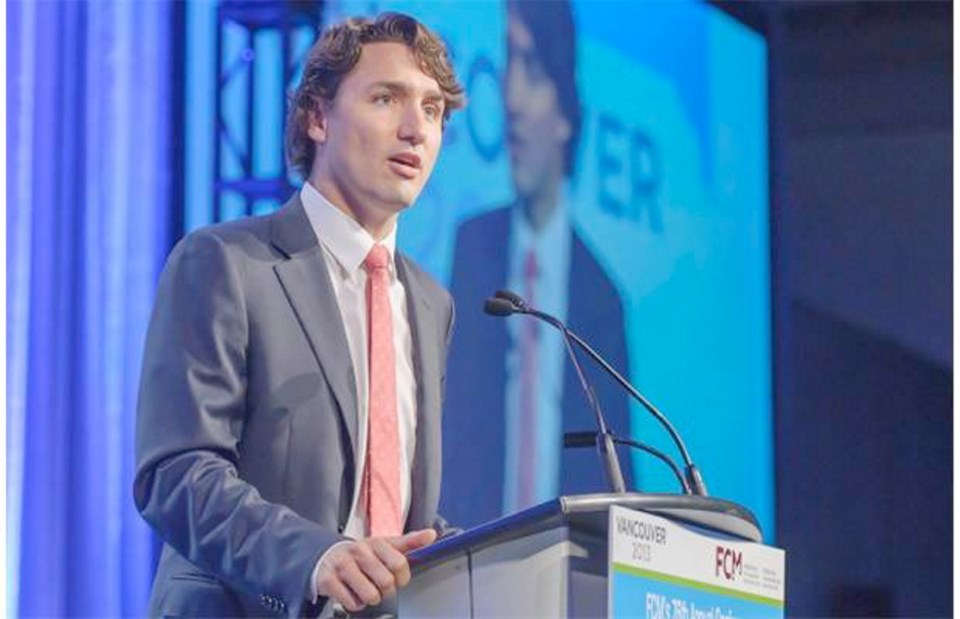VANCOUVER — Federal Liberal Leader Justin Trudeau called on progressive cities to help form the party’s next agenda during remarks at the annual convention of Canadian municipalities.
His speech Sunday followed the release of a Federation of Canadian Municipalities report criticizing how the federal government interacts with cities, which are under provincial jurisdiction.
Ottawa has too often had “minimal response” to challenges facing cities, such as transportation, waste management and aging infrastructure, Trudeau told the crowd. More than 2,000 city officials were expected to attend the four-day conference at Canada Place.
“I hope each and every one of you will take this as an open invitation, whatever your political affiliation, to help shape our platform for 2015 and for the future of this great country,” Trudeau said.
The vast majority of Canadians now live in urban areas. But cities receive only eight cents of every tax dollar, Trudeau said, while the federal government pockets 50 cents and the province gets the remaining 42.
“How do we ensure Canadians all have access to affordable housing?” Trudeau asked. “How do we make our communities, from the smallest outpost to the biggest city, the safest in the world? How can we ensure Canadians in our most rural communities can build strong futures for their families so their kids don’t have to leave?
“How do we ensure all levels of government have the revenue, and the revenue sources we need, to fulfil our responsibilities to Canadians?”
He said he believes the recent scandals in Ottawa and economic insecurity are adding to a sense of anxiety among Canadians that prevents them from addressing complex issues in society.
“For me, the biggest problem is that middle class Canadians have not had a decent raise in a generation,” said Trudeau, the eldest son of former prime minister Pierre Trudeau.
Over the past 30 years, the Canadian economy has more than doubled in size ... but middle-class incomes, median family income, has risen only 13 per cent. Because of that, anxiety is growing. Middle-class Canadians are worried that progress, that core Canadian ideal, is under [a] very real threat.”
Outgoing federation president Karen Leibovici said governments need to “put aside whatever the constitutional issues might be” and work together to “ensure we’re providing the services that our citizens are looking for, that Canadians are looking for, as well as ensure we’re competitive on the global stage.”
It was encouraging to hear Trudeau discuss making improvements to the federal-municipal relationship, said Vision Vancouver city councillor Raymond Louie.
“It’s good to have Mr. Trudeau in our camp,” Louie said. “He believes he’s part of that solution, that formula to remake the outdated intergovernmental arrangements that have been a barrier to making important decisions,” he said, pointing to upgrades for Vancouver’s waste water infrastructure and transportation grid as spending requiring federal investment.
In a speech that had federal implications as well as municipal ones, Trudeau also sent up the Senate.
“Nobody, including myself, who has watched the goings-on in the Senate over the past year could possibly support the status quo,” said Trudeau, who said he wants to see Senate reform without reopening the Constitution.
Last week, Trudeau created controversy when he was quoted as saying the current Senate composition is an advantage to Quebec, which has 24 senators, over Alberta, which has six.
After his talk, Trudeau also applauded the B.C. government’s decision to reject the proposed Enbridge Northern Gateway pipeline, saying the economic and environmental costs were too high.



